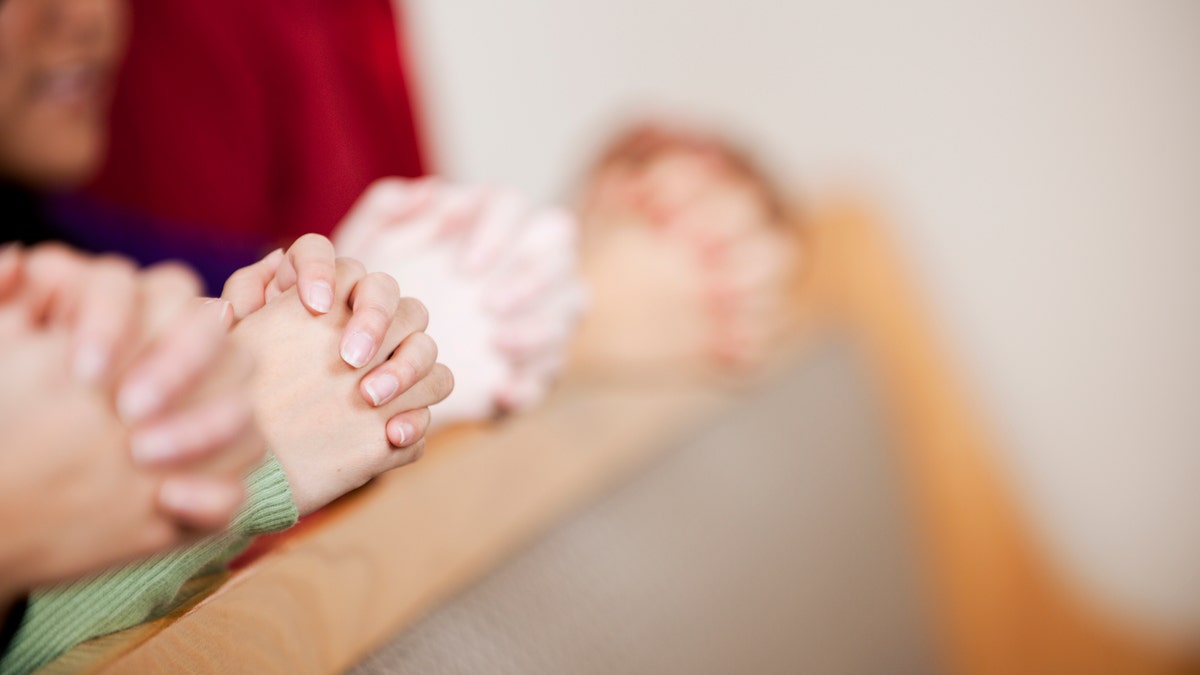The end of the pandemic is a political decision, not a medical one: Doctor
Stanford professor of medicine Dr. Jay Bhattacharya weighs in on ‘social, economic, and health harms’ caused by pandemic restrictions on ‘The Next Revolution'
Religious affiliation in the U.S. has continued to fall during the pandemic, according to a new survey from the Pew Research Center.
The percentage of Americans who identify as Christians now stands at 63%, down from 65% in 2019 and from 78% in 2007. Meanwhile, 29% of Americans now identify as having no religion, up from 26% in 2019 and 16% in 2007, when Pew began tracking religious identity.

At least 44 cases of the virus are linked to the services at Genesis Community Church, which held four services on Dec. 23 and Dec. 24. (iStock)
Many places of worship closed during the pandemic—some voluntarily, others as a result of state and local social-distancing rules—and in-person church attendance is roughly 30% to 50% lower than it was before the pandemic, estimates Barna Group, a research firm that studies faith in the U.S. Millions of Americans moved to worshiping online, and questions linger about how many will come back in person.
GOP SENATORS STATE DEPARTMENT TO PUT NIGERIA BACK ON RELIGIOUS FREEDOM ‘CONCERN’ LIST

Sarah Rosenberg, an ordination program student, studies in the beit midrash, a space for learning, at Yeshivat Maharat in the Bronx borough of New York, on Wednesday, Dec. 8, 2021. (AP Photo/Jessie Wardarski)
A previous Pew survey, in January, found that a third of Americans said their faith had grown stronger during the pandemic—the highest share of any developed country. But overall, religious engagement trended downward at roughly the same rate as before the pandemic, according to the new Pew survey.

People are seen inside Cathedral of Saint Mary of the Assumption ahead of an in-church Easter Mass celebration in San Francisco, California Sunday, April 4, 2021. (Stephen Lam/The San Francisco Chronicle via Getty Images)
"A significant minority of the population is saying their faith has been strengthened as a result of the coronavirus outbreak," said Greg Smith, associate director of research at Pew and author of the religious affiliation study. "But that group, the people who say their faith has been strengthened, is concentrated among those who were already highly religious. There’s not a lot of evidence of people who were not that religious before March 2020 [and] have become so," he said.
CLICK HERE TO GET THE FOX NEWS APP
Among the 29% who say they have no religion, 4% say they are theists and 5% agnostics. Both of those figures are unchanged since 2017. The percentage of Americans who identify as "nothing in particular" grew from 16% in 2017 to 20% this year. Though some who identify as "nothing in particular," may believe in God, Mr. Smith said they are far less likely to pray or attend services than Americans who identify with a religious group.
To continue reading on The Wall Street Journal, click here.









































